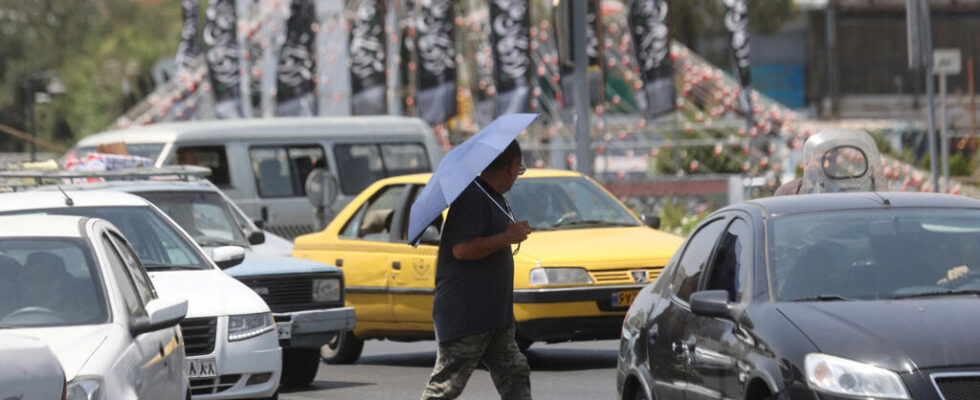Iran ordered the closure of banks and government institutions on Sunday, July 28, due to the heat wave that the country is experiencing. The goal? To save energy to avoid power cuts in homes and thus avoid social discontent. But this has consequences for the country’s economy.
1 min
With our correspondent in Tehran, Siavosh Ghazi
Faced with temperatures that are well above 40 degrees and can reach 50 degrees in cities in southern Iran, the government has decided to close administrations and banks during the day on Sunday to reduce the consumption energy and thus prevent massive power cuts.
With the intense heat that has hit the country, consumption has increased by almost 10% and the electricity network is at its wit’s end. And this affects all professional categories, as is the case of Mohammad, a 55-year-old taxi driver. Since this morning, we have been waiting in the taxi rank and there are no customers. My children advised me not to go out to avoid the risk of collapsing. There are no more cuts. Last night, we had no electricity for three hours. It is very hot ” he laments.
To avoid massive blackouts, electricity to factories and deep wells used in agriculture is cut off for several hours during the day. We are farmers. The electricity to our deep wells is cut off between 12 noon and 4 p.m.. This increases drought. Some lands are not cultivated as before and plantations are drying up due to lack of water. ” says Amir, a young farmer.
According to the government, electricity consumption has again broken a record, approaching 80,000 megawatts, a historic record.
Read alsoSudan-Iran: end of eight years of diplomatic rupture with the taking up of office of the two ambassadors
